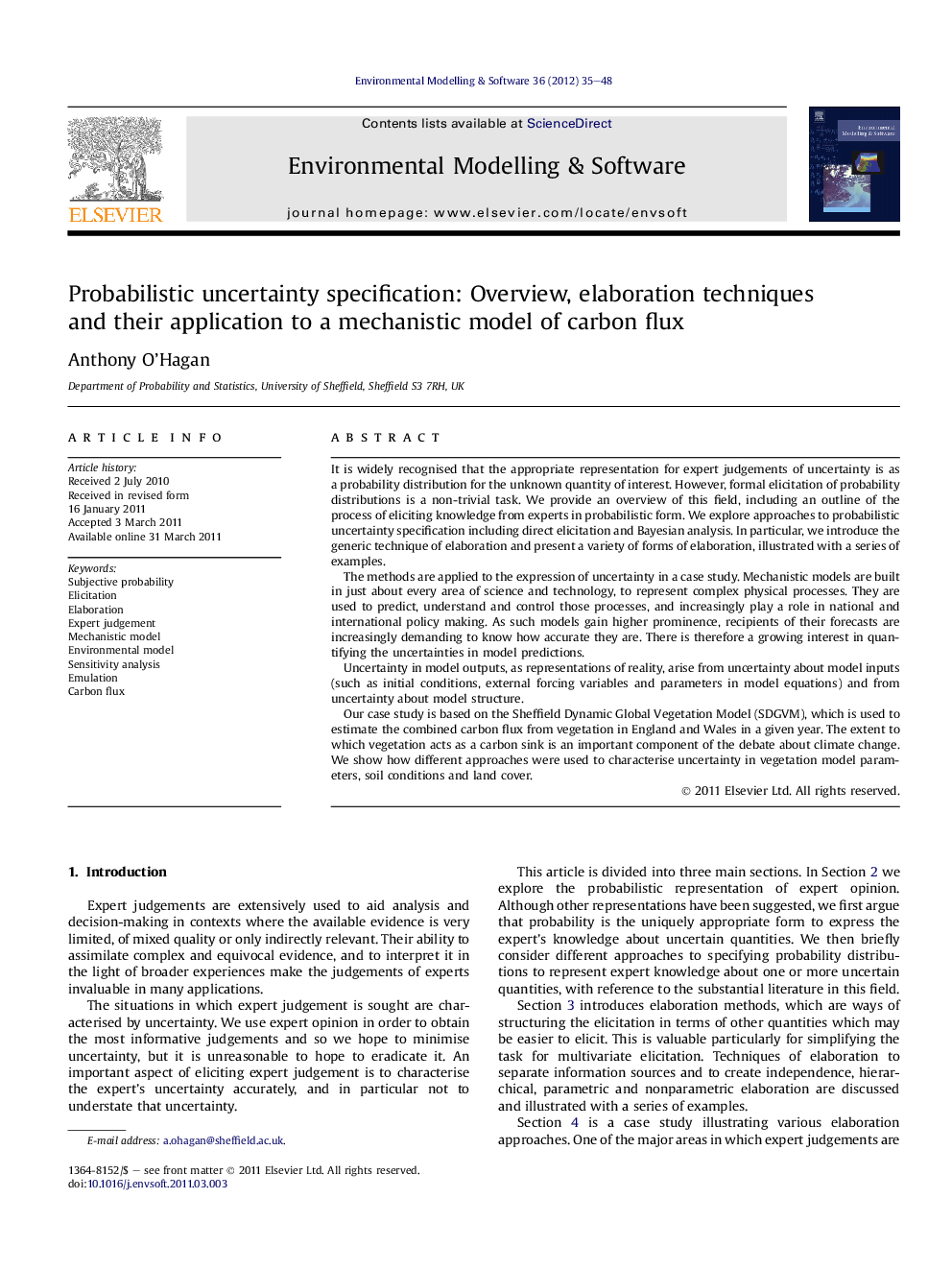| Article ID | Journal | Published Year | Pages | File Type |
|---|---|---|---|---|
| 568608 | Environmental Modelling & Software | 2012 | 14 Pages |
It is widely recognised that the appropriate representation for expert judgements of uncertainty is as a probability distribution for the unknown quantity of interest. However, formal elicitation of probability distributions is a non-trivial task. We provide an overview of this field, including an outline of the process of eliciting knowledge from experts in probabilistic form. We explore approaches to probabilistic uncertainty specification including direct elicitation and Bayesian analysis. In particular, we introduce the generic technique of elaboration and present a variety of forms of elaboration, illustrated with a series of examples.The methods are applied to the expression of uncertainty in a case study. Mechanistic models are built in just about every area of science and technology, to represent complex physical processes. They are used to predict, understand and control those processes, and increasingly play a role in national and international policy making. As such models gain higher prominence, recipients of their forecasts are increasingly demanding to know how accurate they are. There is therefore a growing interest in quantifying the uncertainties in model predictions.Uncertainty in model outputs, as representations of reality, arise from uncertainty about model inputs (such as initial conditions, external forcing variables and parameters in model equations) and from uncertainty about model structure.Our case study is based on the Sheffield Dynamic Global Vegetation Model (SDGVM), which is used to estimate the combined carbon flux from vegetation in England and Wales in a given year. The extent to which vegetation acts as a carbon sink is an important component of the debate about climate change. We show how different approaches were used to characterise uncertainty in vegetation model parameters, soil conditions and land cover.
► Techniques for eliciting expert knowledge are reviewed and best practice identified. ► Elaboration is identified as a key elicitation tool, and various forms illustrated. ► A case study is presented showing different forms of elaboration in practice.
